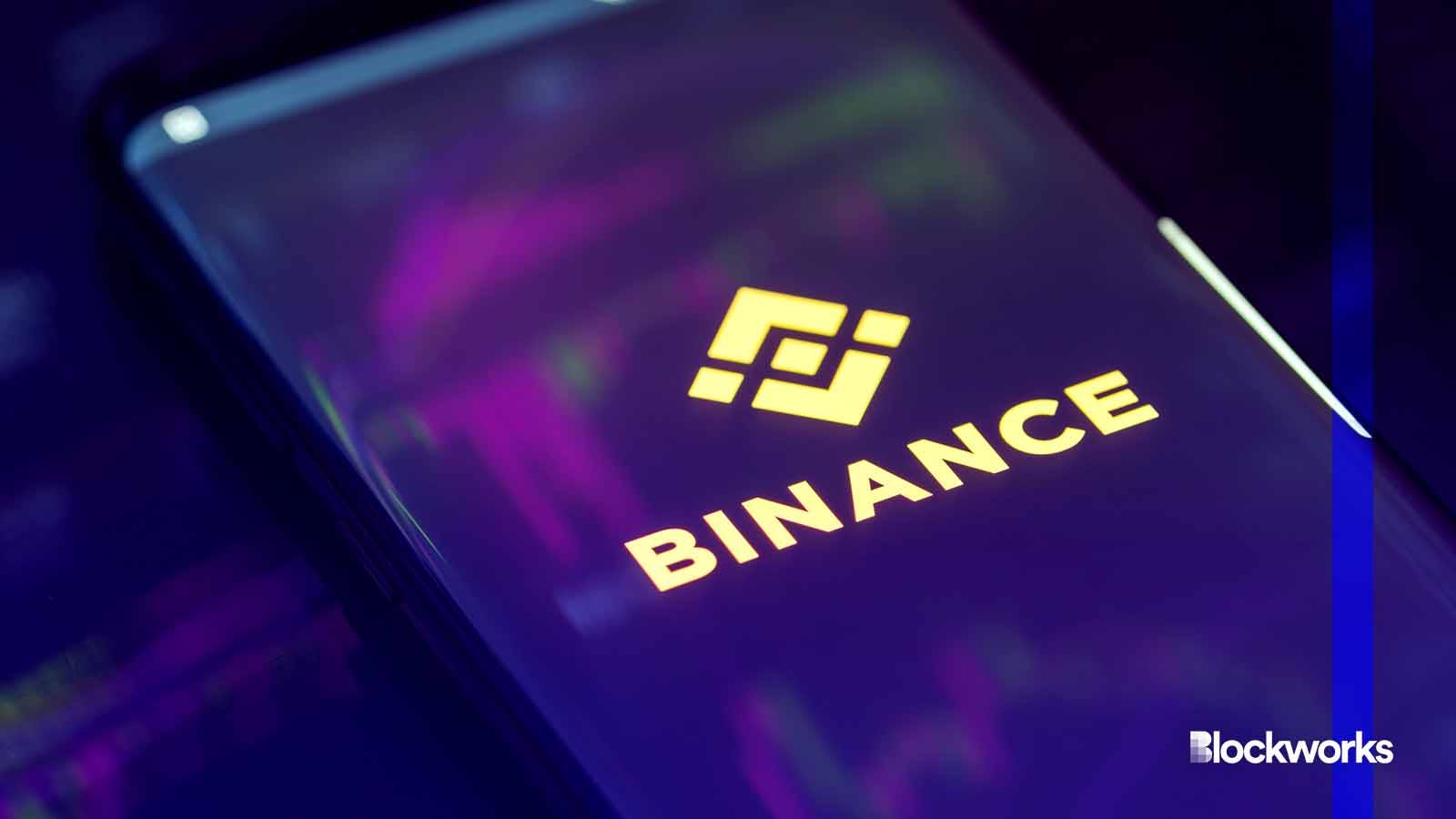Binance gave VIP traders a heads up on $4B settlement: Bloomberg
A dinner back in September gave big traders a heads up about the DOJ settlement, Bloomberg reported

Grey82/Shutterstock modified by Blockworks
Binance reportedly held a dinner for its biggest market makers ahead of the $4 billion settlement announcement with the Department of Justice.
The topic at hand? According to Bloomberg: the settlement. The dinner was held in a Singapore night club and took place back in September; months before the $4 billion figure was made publicly reported and the settlement was officially announced.
“After conversations with company representatives present at the dinner, some VIP guests were left convinced that the firm would pay that sum — an amount Binance could easily afford,” the Bloomberg report claimed.
Former CEO Changpeng Zhao was also, according to the report, absent from the gathering of VIPs. Richard Teng, Binance’s new CEO, was present however.
Zhao reached a plea agreement with the US government in late November. As part of the agreement, he resigned from his position as CEO and pleaded guilty to anti-money laundering violations.
While Magistrate Judge Brian Tsuchida originally found that Zhao was at “no risk of flight,” US District Judge Richard Jones disagreed, and plans to keep Zhao in the US “until such time as this court resolves the government’s motion for review.”
Zhao — a citizen of Canada and the United Arab Emirates — resides in the UAE with his partner and children. He faces sentencing in February of next year.
Binance had long been under investigation by the Department of Justice. In late October, lawmakers penned a letter to Attorney General Merrick Garland — who announced the charges and settlement with Binance — to “expeditiously conclude” the DOJ’s investigation into the crypto exchange.
As part of its deal, Binance pleaded guilty to operating as an unlicensed money transmitting business and failing to comply with registration requirements as well as violating sanctions laws.
Zhao is barred from operating or managing Binance for a period of three years “from the date a monitor is appointed.”
Binance’s legal woes are not over, however, as it still faces a legal battle against the Securities and Exchange Commission, which alleges that it commingled customer funds and both offered and sold unregistered securities.
Binance did not immediately return a request for comment, though it told Bloomberg that the “depiction of the event was inaccurate.”
Get the news in your inbox. Explore Blockworks newsletters:
- The Breakdown: Decoding crypto and the markets. Daily.
- 0xResearch: Alpha in your inbox. Think like an analyst.






